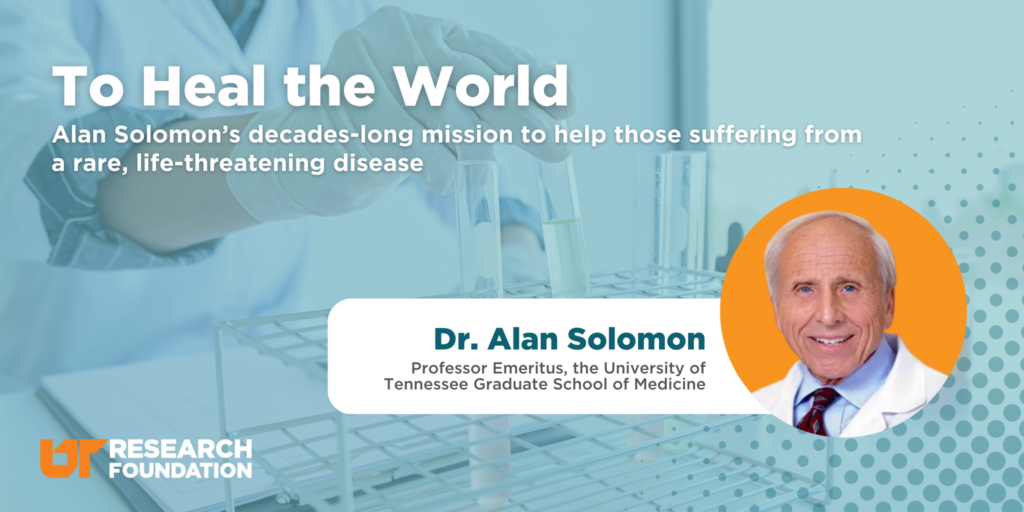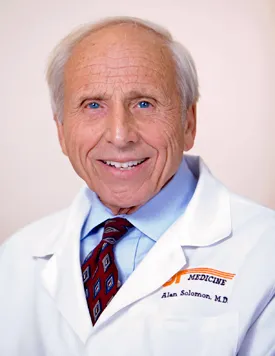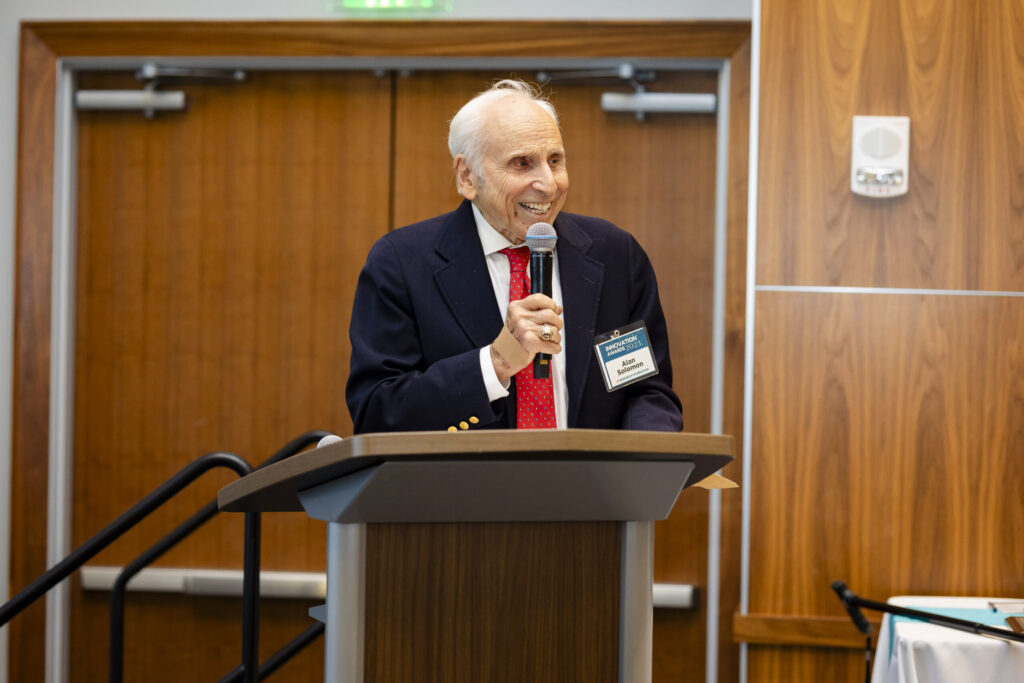
In the Jewish religion, there is the concept of ‘tikkun olam,’ or to ‘heal the world.’ It means that each person can make the world a better place,” said Alan Solomon. “I hope I’ve made the world a little better from my being here.”
Solomon, professor emeritus of the University of Tennessee Graduate School of Medicine, spent nearly five decades practicing medicine and researching light chain (AL) amyloidosis, a rare, life-threatening disease caused by amyloid protein buildup in the body.
AL amyloidosis has a terrible prognosis – three or six months to live,” said Solomon. “My research aimed to come up with something that would alleviate this problem.”

Solomon’s work on AL amyloidosis led to new information on the structure and function of human antibodies and the discovery of 11-1F4, a novel therapeutic for the disease. 11-1F4 has received Orphan Drug Designation as a therapy for AL amyloidosis by the Food and Drug Administration.
At UT, Solomon served as professor of Medicine, Director of the Human Immunology and Cancer Program, and a UT Graduate School of Medicine faculty member. In the early 1990s, he served as one of the seven national American Cancer Society’s Clinical Research Professors.
When I came to Knoxville in 1966, there was very little regarding cancer care. It was a cancer desert,” said Solomon. “The University of Tennessee provided me with the space and the support. I collaborated with scientists all over the world. That’s why the program has been successful and will continue to be successful.”
Solomon worked as a practicing physician and a physician-scientist. As a physician, he was motivated to offer a “modicum of help” to those suffering from severe or life-threatening illnesses, no matter the situation or limitations of available therapies.
One of my professors at medical school told me something that I never forgot: ‘The sick never inconvenience the well,'” said Solomon. “I found joy in having empathy and compassion for my patients.”

As a physician-scientist who practiced translational medicine, Solomon referred to himself and others in the profession as a “dying breed” due to current financial and time constraints compared to when he received his training.
As a physician-scientist, you may treat patients with a particular disease and want to do something more – so you take the problem back to your laboratory. If you make a discovery, you can bring it back to your clinic,” said Solomon. “It’s a two-way street. I think that’s the most wonderful way to practice medicine.”
Solomon is also well known for his love of the outdoors, particularly his interests in blacksmithing, stone masonry, and cultivating his 23-acre home named GATOP, or “God’s Answer to Our Prayer.”
GATOP contains one of the largest collections of conifers in the Southeast, numerous native plant species and views of the Great Smoky Mountains and the Tennessee River. Some of GATOP is designated the UT GATOP Arboretum and Education Center as part of the State Botanical Garden of Tennessee or UT Gardens.
Born and raised in New York City, Solomon joked that he “never saw a tree” growing up. He was determined to live “where you can’t see anybody” and with “lots of dogs running around” after visiting a rural part of New York as a child.

“And 30 years later, that dream came true,” he said.
At the 2023 Innovation Awards, the UT Research Foundation inducted Solomon into its Hall of Fame for his lifetime scientific contributions and active role in bettering his community.
“Solomon’s achievements have not only been limited to the medical and research community, but also to his philanthropic work in his adopted hometown,” said Kusum Rathore, UTRF Vice President, Multi-Campus Office.